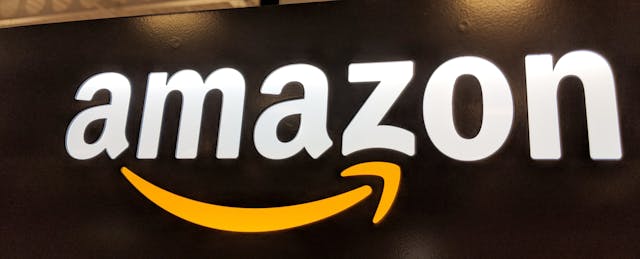After a long build up, Amazon announced this week that the company will open its new headquarters in the New York City and Washington, D.C. metro areas.
Colleges and universities were a part of cities’ pitch to the e-commerce giant, the idea being these places could feed Amazon’s hungry talent pipeline, which will bring around 25,000 new employees to each region. Virginia Tech even announced this week plans to build a $1 billion tech campus near Amazon’s Arlington, Va.-based headquarters.
The new campus will host 500 master’s degree students over the next five years in computer science and software engineering. A press release from Virginia Tech says the campus is “part of a comprehensive higher-education package that was cited as a key reason Amazon selected Virginia for a new headquarters site.”
Other campuses near Amazon’s new locations are also beefing up efforts to train students for careers in tech. For instance, George Mason University, which is located in Fairfax, Va., “plans to triple its computer science graduates—by growing undergraduate and graduate enrollment to 10,000 and 5,000 students respectively over the next five years,” Inside Higher Ed reported.
News of the announcement has drawn positive responses from local college leaders, as well as alternative tech training providers in D.C. and New York City. “I’m incredibly excited that Amazon is coming to New York. I think it’s a reaffirmation of how far NYC has come in terms of building a tech economy,” Adam Enbar, CEO of New York City-based Flatiron School, told EdSurge.
“This is going to bring more people into the field of tech who maybe weren’t considering this, and we are going to need the education system to feed that,” said Dan Sommer, CEO of Trilogy Education, which partners with universities to offer coding bootcamp-style continuing education programs.
But not everyone is gushing over Amazon’s pick, raising concerns over potential rising rents, displacement and other community problems that can accompany the arrival of a a major tech company.
Even Enbar’s excitement comes with a side of skepticism. “The immediate reaction is probably one of ‘oh okay, great, more jobs and more demand for tech talent and that will be good for our students and good for us.’ And I think that’s a very surface-level reaction,” he said. “There are hyperlocal economy considerations like the local coffee shop that could be at risk of rising rents.”
The Flatiron CEO also added that it’s hard to tell at this point how many of the new Amazon employees will be looking to gain skills in coding in particular. Amazon will also be hiring in sales, marketing and other fields that coding bootcamps don’t train for.
“It’s great for NYC bootcamps,” Darrell Silver, CEO of Thinkful, an online coding bootcamp headquartered in Brooklyn, wrote in an email. But he wishes that the company had chosen a smaller city than New York, which already calls home to more corporations than any other city.
“In NYC, we’re fine,” Silver wrote. “The opportunity to create wealth through education is best outside the already wealthiest cities.”
Silver’s critique is shared by others. “Neither New York City nor Washington… needed Amazon. They’re already thriving and bustling with affluent, well-educated millennials,” New York Times columnist James B. Stewart wrote.
Others argue that view overlooks the growing number of corporate headquarters that already exist and are moving to non-coastal parts of the country—and the budding talent pipelines that schools are similarly rushing to fill in these communities. A new database shows that “America’s corporate headquarters are actually spread much farther and wider across the economic landscape than is big tech,” CityLab reported this week.
New York has the most corporate headquarters at 84, but that number has declined 17 percent since 1975. Chicago and Los Angeles similarly have seen declines. Meanwhile, Nashville and Atlanta have seen 50 percent growth over the same time period, and San Antonio, Denver and Seattle all saw 500 percent growth.
“Amazon HQ2 was never about a single HQ2,” Richard Florida wrote in the CityLab piece, “but rather about crowdsourcing data on sites, talent pools, and local incentives, for future sites.”


